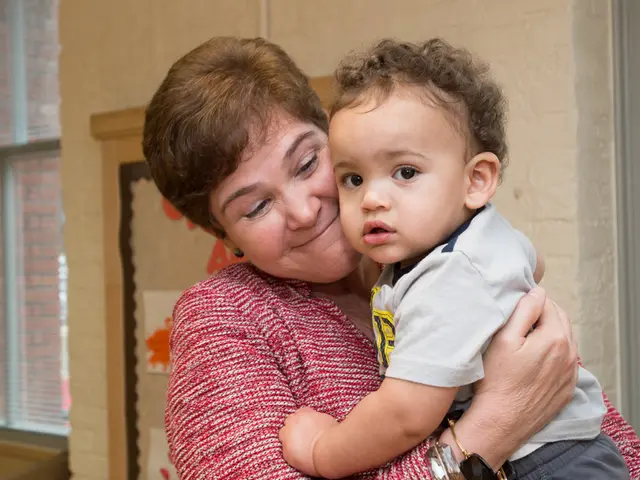Insufficient supplies of milk and diapers affect Syrian refugees in Lebanon due to cuts in American aid
In Lebanon, the United Nations High Commissioner for Refugees (UNHCR) is facing significant operational reductions due to funding cuts. This has resulted in the UNHCR's inability to provide comprehensive support to Syrian refugees and vulnerable communities in the country [1].
One of the affected individuals is Amal al-Merhi, a 20-year-old Syrian mother living in a tent with her family of five in an informal camp in Bar Elias, Lebanon's Bekaa Valley. Prior to the funding cuts, Amal had been receiving cash assistance from the UNHCR, which helped her get by. However, since February, she has not received any assistance, leaving her in a precarious situation [2].
To make ends meet, Amal has resorted to collecting and selling scrap metal. She is not alone in this struggle; many Syrian refugees in Lebanon are now in debt, having to pay for rent, groceries, and medical bills [3]. Issa Idris, a 50-year-old Syrian father of three, is another example. He has taken on debt to buy food for his family since his cash assistance from the UNHCR ceased in February [2].
The funding cuts have also affected the World Food Programme (WFP), forcing them to limit the amount of aid they provide to some of the world's most vulnerable people. In February, the WFP was forced to cut the number of Syrian refugees receiving cash assistance from 830,000 to 660,000 [4].
These funding cuts have serious implications for the people affected. Without adequate food, healthcare, and other essential services, Syrian refugees and vulnerable communities in Lebanon may be forced to make risky or dangerous choices [5]. For instance, women might be pushed into commercial sex work, as suggested by Freijsen [6]. Children may also be forced to work to help their families survive [5].
The funding cuts can be traced back to President Donald Trump's decision to freeze USAID funding to humanitarian programs. The termination of about 83% of USAID’s programs led to the cancellation of roughly 5,200 projects that previously delivered lifesaving aid [1]. Although some waivers were granted for emergency humanitarian aid, the cuts substantially reduced the U.S.'s ability to fund and coordinate humanitarian responses in conflict-affected areas [1][3][4].
The loss of U.S. funding also affects multilateral organizations like UNICEF, which plays a crucial role in crises such as those in Lebanon and Syria. The loss of U.S. core funding to UNICEF threatens rapid response capabilities related to child health, nutrition, and emergency assistance in these humanitarian settings [5].
The uncertainty about the priorities and what will still be funded, as stated by Freijsen, adds to the challenges faced by organizations trying to maintain operations in Lebanon [6]. Fears among minorities are also rising in Lebanon due to outbreaks of deadly sectarian violence [7].
References:
- Trump's Budget Cuts Could Severely Impact Humanitarian Aid
- Syrian Refugees in Lebanon Face Hardship as U.S. Aid Dries Up
- Trump's Budget Cuts Could Severely Impact Humanitarian Aid - The New Humanitarian
- WFP forced to cut food aid for Syrian refugees in Lebanon
- Trump's Budget Cuts Could Severely Impact Humanitarian Aid - UNICEF
- Syria's Refugees in Lebanon Face a Grim Future as U.S. Aid Dries Up
- Lebanon's Syrian Refugees Face Uncertain Future as U.S. Aid Dries Up
Read also:
- Federal Funding Supports Increase in Family Medicine Residency Program, Focusing on Rural Health Developments
- Potential Role of DHA in Shielding the Brain from Saturated Fats?
- Alternative Gentle Retinoid: Exploring Bakuchiol Salicylate for Sensitive Skin
- Hanoi initiates a trial program for rabies control, along with efforts to facilitate the transition from the dog and cat meat trade industry.







